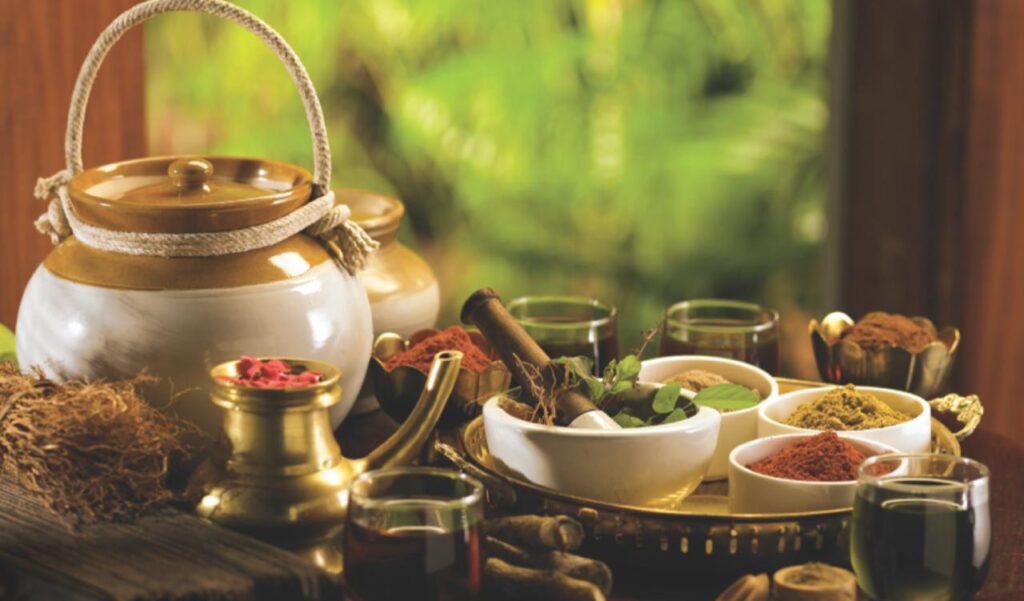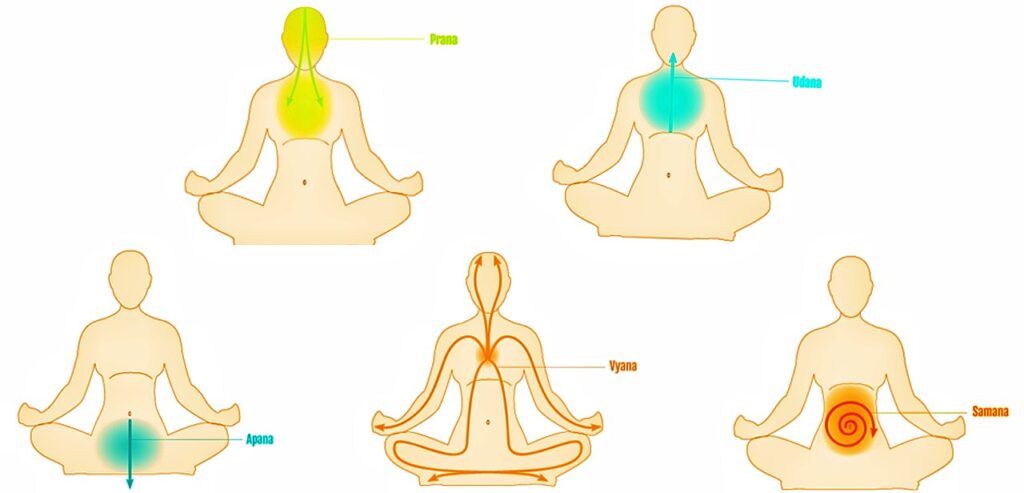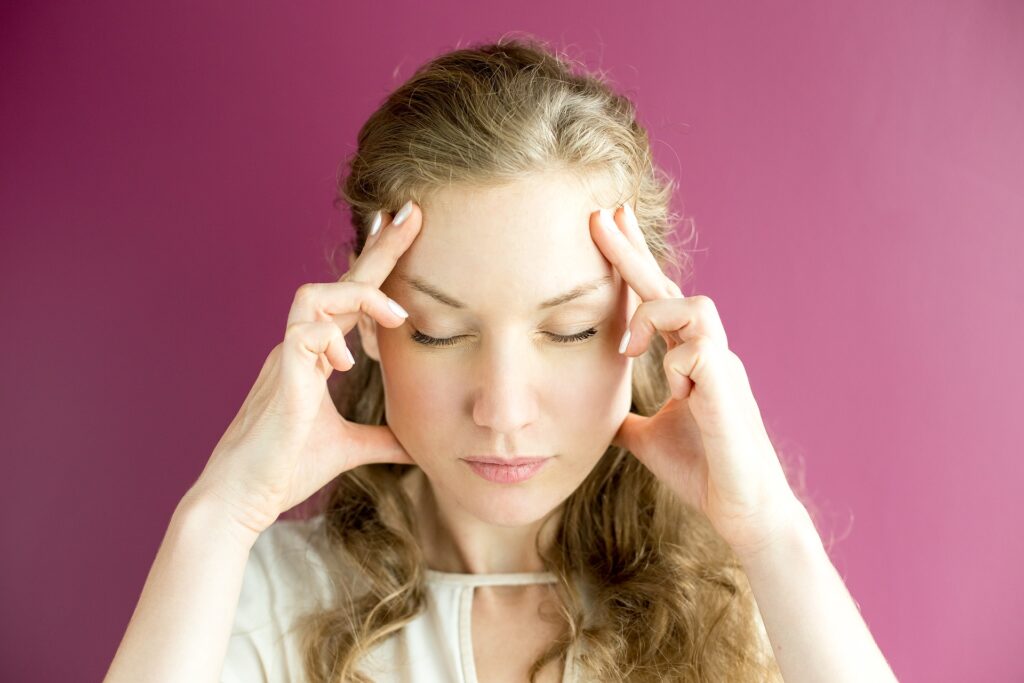Ayurveda and Traditional Medicine in India
Introduction
Are you ready to enter the mystical world of ancient healing arts and experience a holistic well-being journey for your body, mind, and spirit? India, the cradle of Ayurveda and other traditional medicine systems practiced for millennia, beckons you. These healing arts treat illnesses and aim to enhance one’s overall health and well-being, promoting balance and harmony in all aspects of life. Let’s embark on a healing journey through the ancient lands of India and delve into the depths of Ayurveda.
Ayurveda: The Science of Life and Holistic Healing

Ayurveda, meaning “the science of life” in Sanskrit, is an ancient Indian healing system with roots dating back over 5,000 years. It offers a holistic approach to health, focusing on treating diseases and enhancing overall well-being. The fundamental principles of Ayurveda are based on the five elements of the universe (ether, air, fire, water, and earth) and three primary life energies (doshas). This balanced system determines an individual’s physical, mental, and spiritual health.
The Three Doshas
The foundation of Ayurveda lies in the concept of doshas, three fundamental life energies that define each individual’s unique physical, mental, and emotional characteristics. Named Vata, Pitta, and Kapha, these doshas are composed of the five elements of the universe (ether, air, fire, water, and earth) and govern various functions within our bodies. Understanding your dosha type allows you to utilize Ayurveda’s healing methods to maintain health and restore balance effectively.
Vata (Air and Ether)
Representing movement and change, Vata dosha governs the nervous, circulatory, and elimination systems. The primary qualities of Vata are cold, light, dry, mobile, and irregular. Consequently, Vata individuals are typically slender, tall, flexible, and active. They are known for their creativity, energy, quick learning, and enthusiasm. However, when Vata is imbalanced, they may experience anxiety, digestive issues (gas, bloating, constipation), insomnia, dry skin, hair loss, joint pain, and feeling cold. To balance Vata, consuming warm, oily, and nourishing foods is crucial, establishing a routine, managing stress, and practicing yoga and meditation.
Pitta (Fire and Water)
Representing metabolism and transformation, Pitta dosha governs the digestive system, metabolism, and body temperature. The primary qualities of Pitta are hot, light, sharp, oily, and fluid. Consequently, Pitta individuals typically have a medium build and are athletic, strong, and competitive. They are known for their intelligence, ambition, determination, and leadership qualities. However, when Pitta is imbalanced, they may experience irritability, skin problems (acne, eczema), inflammation, heartburn, acid reflux, eye problems (redness, sensitivity), and excessive sweating. To balance Pitta, consuming cool, sweet, and light foods is crucial; avoiding competitive environments, spending time in nature, and engaging in calming activities are essential.
Kapha (Water and Earth)
Representing structure and stability, Kapha dosha governs the immune, musculoskeletal, and body fluids. The primary qualities of Kapha are cold, heavy, oily, slow, and stable. Consequently, Kapha individuals are typically muscular and powerful, resilient, and calm. They are known for their loving, compassionate, loyal, and reliable nature. However, when Kapha is imbalanced, they may experience weight gain, lethargy, depression, mucus buildup, allergies, asthma, and water retention. To balance Kapha, consuming spicy, dry, and light foods is crucial, as well as engaging in regular exercise, learning new things, and maintaining an active lifestyle.
Each individual possesses a unique combination of these three doshas in varying proportions. By taking a dosha test or consulting an Ayurveda specialist, you can discover your unique constitution and utilize Ayurveda’s healing methods to maintain health, restore balance, and enhance your quality of life.
Ayurveda Treatment Methods: Restoring Balance

Ayurveda offers a holistic healing approach, focusing on treating illnesses and enhancing one’s overall health and well-being. Various treatment methods are employed to achieve this, tailored to each individual. These methods aim to restore dosha balance, eliminate toxins, regulate digestion, reduce stress, and improve overall quality of life.
Herbal Medicine
With its accumulated knowledge over thousands of years, Ayurveda utilizes various medicinal herbs and spices. Each herb possesses unique properties and effects. For example, turmeric has powerful anti-inflammatory and antioxidant properties, relieving joint pain and boosting immunity. Ginger supports digestion, alleviates nausea, and enhances metabolism. Ashwagandha reduces stress, increases energy levels, and improves sleep quality. Brahmi supports mental functions, strengthens memory, and enhances concentration. Triphala cleanses the digestive system, relieves constipation, and supports immunity. These are just a few examples of the vast variety of herbs and spices used in Ayurveda.
Diet
According to Ayurveda, the foods we consume directly impact our health. Each food item carries a different energy and effect. Therefore, Ayurveda emphasizes personalized diet plans tailored to an individual’s dosha balance, age, gender, lifestyle, and health condition. For instance, Vata individuals benefit from consuming warm, oily, and nourishing foods (soups, stews, cooked vegetables, grains, dairy products). In contrast, Pitta individuals prefer cooling, sweet, and light foods (salads, fruits, yogurt, grains). Kapha individuals aim to boost their metabolism by consuming spicy, dry, and light foods (vegetables, legumes, spices). Ayurveda recognizes six tastes (sweet, sour, salty, bitter, astringent, and spicy), influencing different doshas. A balanced diet should incorporate all six tastes.
Yoga and Meditation
Yoga supports physical and mental health by stretching, strengthening, and balancing the body’s energy flow. Different yoga styles are suitable for different doshas. For example, slow and relaxing yoga styles (Yin Yoga, Restorative Yoga) are recommended for Vata individuals. In contrast, more dynamic and challenging yoga styles (Vinyasa Yoga, Ashtanga Yoga) suit Pitta individuals. Kapha individuals may prefer energetic and heat-generating yoga styles (Power Yoga, Bikram Yoga). Meditation helps to calm the mind, reduce stress, increase focus, and achieve spiritual balance. Various meditation techniques exist, including breath, mantra, and mindfulness meditation.
Panchakarma
Panchakarma is an intensive detoxification program aimed at eliminating toxins from the body. It involves five different treatment methods: Vamana (therapeutic vomiting), Virechana (therapeutic purgation), Basti (therapeutic enema), Nasya (nasal administration), and Raktamokshana (blood-letting). Panchakarma treatment is personalized based on the individual’s dosha balance and health condition and is typically administered under the guidance of experts at an Ayurveda center. Panchakarma cleanses the digestive system, strengthens immunity, reduces stress, and improves overall health.
Massage Therapies
Massages using various oils and techniques hold significant importance in Ayurveda. Massages improve blood circulation, reduce stress, relieve muscle tension, support lymphatic drainage, and eliminate toxins from the body. Abhyanga (warm oil massage) is the most common type of Ayurvedic massage. This massage, performed with warm herbal oils, relaxes the entire body, nourishes the skin, and balances the doshas. Shirodhara is a massage that involves pouring warm oil onto the forehead and is mainly used to reduce stress, calm the mind, and improve sleep. Marma therapy is a technique involving the massage of energy points and supports physical and mental health by balancing energy flow.
With its accumulated knowledge and experience over thousands of years, Ayurveda offers holistic healing by restoring balance between body, mind, and spirit. Its personalized treatment methods help individuals achieve a healthy, happy, and balanced life.
Benefits of Traditional Indian Medicine
Traditional Indian medicine, particularly Ayurveda, offers a holistic approach to enhancing human health and well-being for millennia. Unlike Western medicine, which primarily focuses on treating disease symptoms, Ayurveda seeks to address the root cause of illness and restore balance between body, mind, and spirit. This approach leads to improvements in both physical and mental health, ultimately enhancing the quality of life.
Physical Health Benefits: A Strong Body
Management of Chronic Diseases
Ayurveda can help alleviate symptoms and slow down the progression of chronic diseases such as diabetes, arthritis, asthma, and heart disease. For example, herbal remedies and dietary plans that help regulate blood sugar are used for diabetes. For arthritis, herbal remedies that reduce joint pain and inflammation, massage therapies, and yoga are recommended. For asthma, herbal remedies that open the airways and have expectorant properties and breathing exercises are utilized. For heart diseases, herbal remedies, and lifestyle changes that lower cholesterol levels and support heart function are suggested. Ayurveda addresses the root cause of chronic diseases rather than just managing symptoms. It aims to restore balance within the body and strengthen its natural healing mechanisms.
Pain Management
Massage therapies, yoga, and herbal remedies can help alleviate various types of pain, including headaches, back pain, and joint pain. Massage therapies improve blood circulation, reduce muscle tension, and relieve pain. Yoga helps reduce pain and increase flexibility by stretching and strengthening the body. Additionally, herbal remedies with analgesic and anti-inflammatory properties can be used. For instance, herbs such as turmeric, ginger, and boswellia effectively manage pain. Ayurveda emphasizes a holistic approach to pain management, addressing not just the physical symptoms but also the emotional and mental aspects of pain. Improved Sleep Quality
Ayurveda’s relaxing therapies and herbal remedies reduce stress and improve sleep quality, helping to address insomnia.
Digestive System Health
Ayurveda offers practical solutions for digestive system problems such as constipation, diarrhea, bloating, and gas. Dietary adjustments, herbal remedies, and yoga help balance the digestive system.
Improved Sleep Quality
Ayurveda’s relaxing therapies and herbal remedies reduce stress and improve sleep quality, helping to address insomnia. Soothing massage therapies, meditation, yoga, and herbal remedies (ashwagandha, jatamansi, tagara) can help alleviate sleep problems. Additionally, establishing a regular sleep routine, taking a warm bath before bed, listening to calming music, and avoiding caffeinated beverages can improve sleep quality. Ayurveda emphasizes the importance of a balanced lifestyle and a calm mind for achieving restful sleep.
Mental Health Benefits: A Peaceful Mind
Stress and Anxiety Management

In today’s fast-paced life, stress and anxiety are common issues faced by many individuals. Ayurveda offers various methods to reduce stress and alleviate anxiety. Meditation effectively reduces stress by calming the mind and promoting inner peace. Yoga helps reduce stress and promote relaxation by balancing the body and mind. Massage therapies alleviate stress by reducing muscle tension and improving blood circulation. Herbal remedies (ashwagandha, brahmi, jatamansi) can help reduce anxiety by calming the nervous system and balancing stress hormones. Additionally, lifestyle changes such as spending time in nature, exercising regularly, eating a healthy diet, and getting adequate sleep are crucial in managing stress and anxiety. Ayurveda emphasizes the mind-body connection and provides tools to manage stress and anxiety through natural means.
Depression Relief
Depression is a severe mental health condition that affects mood, thoughts, and behaviors. Ayurveda offers various methods that can help alleviate symptoms of depression and improve mood. Herbal remedies (ashwagandha, brahmi, shankhpushpi) can help treat depression by balancing brain chemicals and enhancing mood. Yoga and meditation can alleviate depression symptoms by calming the mind, reducing negative thoughts, and promoting inner peace. Additionally, lifestyle changes such as regular exercise, healthy eating, seeking social support, and therapy are also crucial in depression treatment. Ayurveda emphasizes a holistic approach to depression, addressing the physical, emotional, and mental aspects of the condition.
Increased Concentration and Focus
Concentration and focus problems can affect learning, work, and daily life activities. Ayurveda offers methods that can help improve concentration and mental focus. Herbal remedies (brahmi, shankhpushpi, guduchi) can improve concentration by supporting brain function, strengthening memory, and enhancing mental clarity. Meditation can be effective by calming the mind and increasing focus. Lifestyle changes such as regular sleep, healthy eating, and brain exercises can also improve concentration. Ayurveda provides tools to enhance cognitive function and mental clarity, improving focus and concentration.
Emotional Balance
Ayurveda addresses emotional imbalances and helps improve emotional well-being. Imbalances in the doshas can lead to emotional imbalances. For example, Vata imbalance can cause anxiety and fear, Pitta imbalance can cause anger and irritability, and Kapha imbalance can cause lethargy and depression. Ayurveda aims to restore emotional balance by balancing the doshas. Methods such as herbal remedies, yoga, meditation, and dietary adjustments can effectively achieve emotional balance. Ayurveda emphasizes the connection between physical and emotional health and provides tools to achieve emotional well-being.
Spiritual Benefits
Inner Peace and Meaning

Spiritual Development: Practices like yoga and meditation increase self-awareness, support spiritual growth, and allow individuals to understand themselves better. Through physical postures, breathing exercises, and meditation, yoga helps individuals connect with their inner selves and develop a deeper understanding of their physical, mental, and spiritual being. Meditation cultivates mindfulness and present-moment awareness, allowing individuals to observe their thoughts and emotions without judgment. This increased self-awareness fosters spiritual growth and a deeper connection to one’s true self.
Finding Life Purpose
Ayurveda helps individuals discover their life purpose and values. Each individual is believed to have an innate dharma (life purpose). By understanding one’s dosha, talents, interests, and values, Ayurveda helps individuals discover their dharma, leading to a more meaningful and fulfilling life. Ayurveda encourages individuals to reflect on their unique qualities and strengths and find ways to align their actions with their life purpose. This process of self-discovery and alignment with one’s dharma brings a sense of meaning and fulfillment to life.
Connection and Wholeness
Ayurveda fosters a sense of wholeness by enabling individuals to connect with themselves, nature, and the universe. According to Ayurveda, everything is interconnected and part of a whole. People can experience a more meaningful and peaceful life when they realize this interconnectedness. Practices such as yoga and meditation help individuals connect with their inner world and the external world around them. Spending time in nature allows individuals to appreciate the beauty and interconnectedness of all living things. Additionally, rituals and ceremonies in Ayurveda can help individuals connect with the universe and the spiritual realm. Ayurveda promotes inner peace and a sense of belonging in the world by fostering a sense of connection and wholeness.
Other Benefits of Traditional Indian Medicine
Few Side Effects
Herbal remedies used in traditional medicine, when used correctly, generally do not cause side effects. Herbal medicines are derived from natural sources and often have a gentler impact on the body than synthetic drugs. They are less likely to cause adverse reactions or dependency. However, it’s important to note that herbal remedies can still have potential side effects or interactions with other medications. Therefore, consulting with a qualified practitioner before using herbal remedies is crucial. Additionally, the quality and purity of herbal products can vary, so choosing reputable sources is essential.
Personalized Treatment
Ayurveda creates personalized treatment plans, considering each individual’s unique needs. Ayurvedic practitioners thoroughly assess an individual’s physical, mental, and emotional state, including their dosha constitution, lifestyle, and health history. Based on this assessment, a personalized treatment plan is developed, which may include dietary recommendations, herbal remedies, yoga, meditation, massage therapies, and lifestyle modifications. This individualized approach ensures that the treatment is tailored to each person’s specific needs, promoting optimal health and well-being.
Preventative Approach
Traditional medicine focuses on preventing diseases and maintaining overall health. Ayurveda emphasizes maintaining a balanced lifestyle and a healthy routine to avoid diseases. This includes following a dosha-specific diet, practicing yoga and meditation, getting enough sleep, and managing stress effectively. Ayurveda also emphasizes the importance of seasonal routines and adapting one’s lifestyle to the changing seasons to maintain balance and prevent diseases. By focusing on prevention, traditional medicine empowers individuals to actively preserve their health and well-being.
Accessibility
Traditional medicine practices in India are generally more affordable than Western medicine. Ayurvedic treatments, herbal remedies, and yoga classes are often more accessible and inexpensive than conventional medical treatments and medications. This makes traditional medicine a viable option for many people, especially in areas with limited access to healthcare. Additionally, many conventional remedies and practices can be easily incorporated into daily life, making them a sustainable and cost-effective approach to health and well-being.
Traditional Indian medicine offers a holistic approach to healing and transformation by addressing physical, mental, and spiritual health. It provides practical solutions for strengthening your body, calming your mind, and nourishing your spirit, leading to a healthier, happier, and more fulfilling life.
Celebrities Interested in Ayurveda
Cameron Diaz
The famous Hollywood star Diaz is a dedicated follower of Ayurveda.
- Harrison Ford : Ayurveda is an integral part of life for the charismatic star of the Indiana Jones series.
- Sylvester Stallone: The Italian-American star, known for the Rocky series, is one of the celebrities who turned to Ayurvedic methods to relieve his persistent knee pain.
- Gwyneth Paltrow: Actress and lifestyle guru Gwyneth Paltrow has frequently expressed her interest in Ayurveda.
- Jennifer Aniston: Actress Jennifer Aniston is known to incorporate Ayurvedic practices into her healthy lifestyle routine.
- Madonna: Madonna, the Queen of Pop, is interested in Ayurvedic practices such as yoga and meditation.
FAQs About Traditional Medicine in India
What is Ayurveda?
Ayurveda is a traditional system of medicine practiced in India for over 5,000 years. It means “the science of life” and aims to maintain health and treat illnesses by balancing the body, mind, and spirit.
What are Ayurvedic treatments?
Ayurvedic treatments are personalized and may include various methods such as herbal remedies, dietary adjustments, yoga, meditation, massage therapies, Panchakarma (detoxification), and lifestyle changes.
Is Ayurveda suitable for me?
Ayurveda is a holistic healing system suitable for most individuals. However, consulting a specialist in certain situations (pregnancy, breastfeeding, serious illnesses) is essential.
Is it safe to receive traditional medicine treatment in India?
There are reputable and experienced Ayurvedic doctors and therapists in India. However, it is crucial to research, choose a qualified center or practitioner, and manage your expectations before receiving treatment.
How long does traditional medicine treatment take in India?
The duration of treatment varies depending on the individual’s health condition and treatment plan. Some treatments may last a few weeks, while others may take several months.
Is traditional medicine treatment expensive in India?
Traditional medicine treatment in India is generally more affordable than Western medicine. However, the cost of treatment can vary depending on the treatment plan, accommodation options, and the center’s quality.
Do I need a visa for traditional medicine treatment in India?
Most foreign nationals require a visa to travel to India. The visa application process and required documents may vary depending on the country of origin.
When is the best time to receive traditional medicine treatment in India?
The climate in India varies across regions. Due to the milder weather conditions, the period between October and March is generally considered a suitable time for treatment.
What should I pay attention to when receiving traditional medicine treatment in India?
- Choose a qualified and experienced center or practitioner.
- Consult a specialist before starting treatment.
- Clearly understand the treatment plan and your expectations.
- Pay attention to hygiene and safety standards.
- Obtain travel insurance.
- Respect cultural differences.
What else can I do besides receiving traditional medicine treatment in India?
India is also renowned for its historical and cultural richness. During or after your treatment process, you can visit tourist attractions such as the Taj Mahal, Rajasthan forts, Kerala backwaters, and the Himalayas, participate in yoga and meditation retreats, and experience India’s unique culture.










